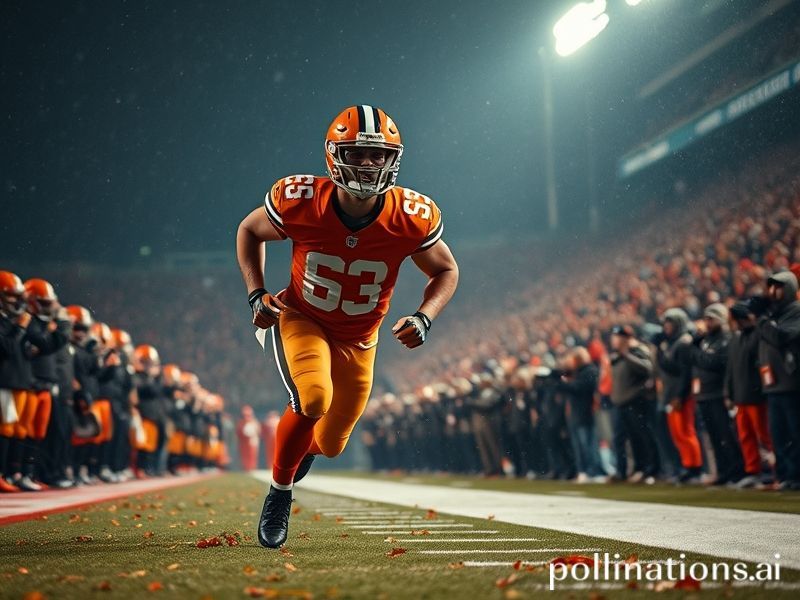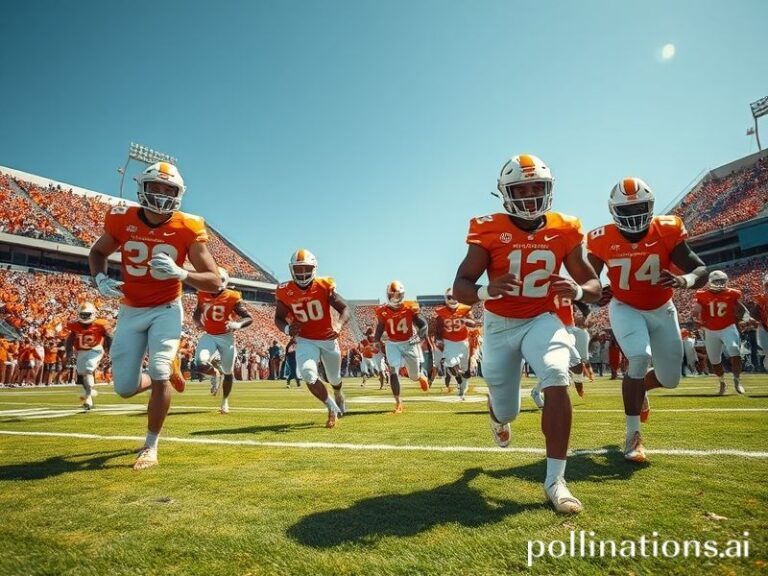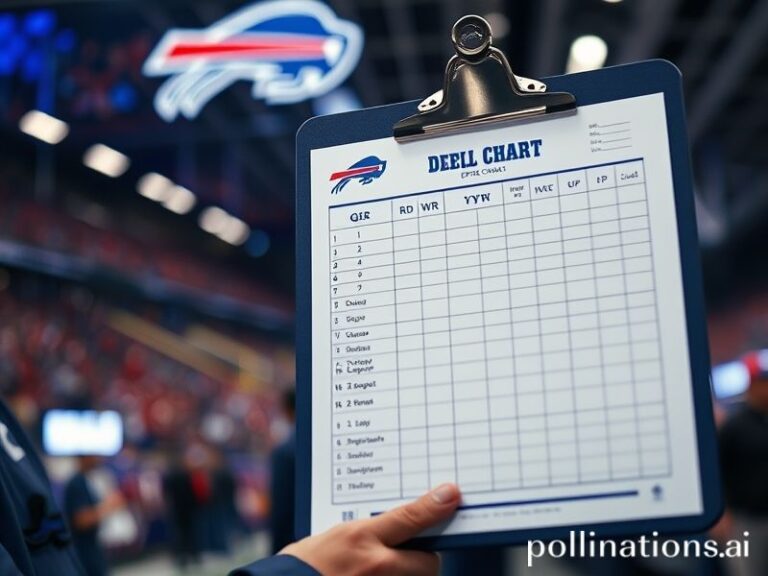Factory of Sadness, Global Icon: How the Cleveland Browns Became the World’s Favorite Punchline
CLEVELAND, OHIO—Somewhere between the rust-belt skyline that looks like Berlin after an especially bitter winter and the Cuyahoga River, famous for once being flammable, the Cleveland Browns continue their noble quest to teach the planet that hope is a renewable resource—mainly because it keeps getting crushed and recycled.
From the vantage point of a globe that has watched Brexit negotiations, Argentine inflation, and Elon Musk’s Twitter feed, the Browns’ saga is oddly comforting: an annual reminder that systemic dysfunction is not uniquely British, Latin, or tech-bro. No, it is a universal dialect, spoken fluently on the shores of Lake Erie.
The franchise’s 0-16 season in 2017 achieved what decades of UN climate reports could not—global unity. Tokyo salarymen, Lagos tech founders, and Copenhagen policy wonks all paused, tilted their heads at their phones, and collectively muttered, “Wait, they did what?” For 24 hours, the planet’s most divisive debate was not vaccine passports but whether the Browns could, in fact, lose to a Division II college squad if given the chance. Social cohesion via shared bewilderment: not bad for a city whose main export used to be crippling self-awareness.
Naturally, the NFL—America’s most lucrative secular religion—has leveraged the Browns as a test case for international expansion. League executives in London insist that British fans will embrace “an authentic underdog story,” apparently forgetting that Brits already queue weekly for one of those at Heathrow baggage claim. Meanwhile, in Mexico City, marketers promote Browns merchandise as “vintage futility chic,” right next to shirts commemorating the 1985 Mexico City earthquake. Nothing says “party” like commemorative tragedy wear.
Economists at the IMF—who have spent the last decade perfecting the art of saying “uncertainty” in seventeen languages—note that the Browns’ front-office strategy provides a useful model for emerging markets seeking to misallocate capital. The team’s 30-year quarterback carousel is now taught in Kenyan business schools under the module “Perpetual Rebuilding: How To Spend $1.3 Billion Without Improving Net Output.” Students love it because the case study includes actual game film, which doubles as absurdist cinema.
Geopolitically, the Browns serve as a soft-power antidote. When European diplomats tire of explaining why their defense budgets resemble gym membership cancellations, they pivot to Cleveland: “At least our trains run on time—unlike the Browns’ two-minute drill.” The joke kills in Brussels. Even Tehran has joined the fun; state television occasionally airs condensed Browns losses with Farsi voice-over: “Observe the Great Satan’s punishment for hubris.” Viewership spikes every autumn.
Closer to home, the Dawg Pound—those famously resilient tailgaters who grill brats in weather that would shut down Siberian gulags—has become a diplomatic oddity. A Japanese documentary crew recently profiled them as “practitioners of mono no aware, the bittersweet awareness of impermanence,” which is a very polite way of saying “season ticket holders who’ve seen three winning campaigns since the Cold War.” The segment ends with a Tokyo pop-up bar serving “Factory of Sadness” lager, complete with a commemorative coaster that changes color when exposed to disappointment.
And yet, 2024 dawns with the usual springtime optimism: a new quarterback whose surname half of Ohio pronounces like a rare respiratory ailment, a defense ranked somewhere between “middling” and “part-time,” and a schedule analysts describe as “survivable, assuming meteor strikes are evenly distributed.” The global betting markets—now accessible from every smartphone between Reykjavik and Rangoon—currently list the Browns at 70-to-1 to win the Super Bowl, odds slightly worse than the asteroid Apophis colliding with Earth but better than finding honest luggage at Heathrow.
In the end, the Browns are not merely a football team; they are a planetary coping mechanism. Whenever a hedge-fund quant in Singapore blows up a pension fund, or a Parisian café runs out of oat milk, the cosmic ledger rebalances somewhere along the North Coast: the Browns take the field, promptly fumble on the one-yard line, and humanity exhales. The universe, it turns out, is not indifferent—it’s just deeply, darkly hilarious. And for 17 glorious Sundays a year, we’re all in on the joke.







